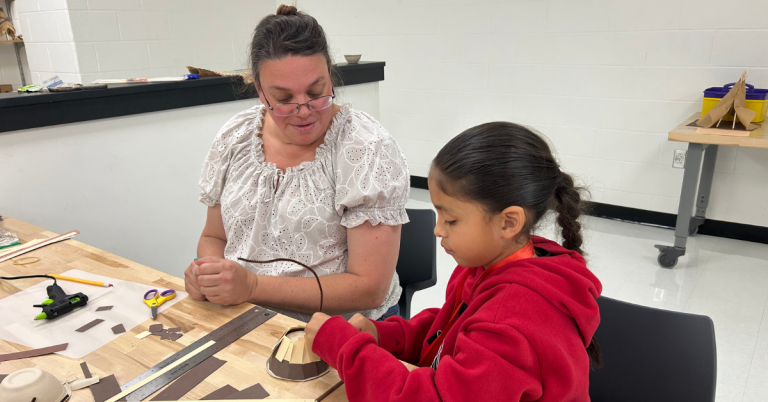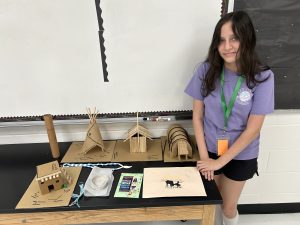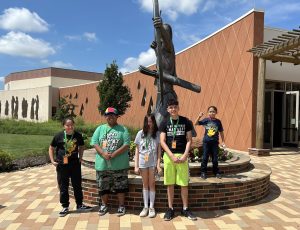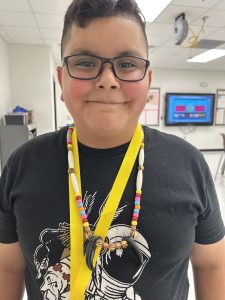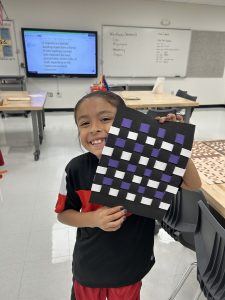Through storytelling, arts and crafts, games, and literature, students in the American Indian Education program deepened their understanding of their native background this summer at Cultural Camp.
“Before attending this camp, I didn’t know much about my tribe,” said Vincent, a rising freshman at Emmett J. Conrad High School. “I just showed up to powwows and danced in my regalia. I learned more about my history because of this experience, and it made me love my tribe more. By learning about other tribes, I can also help those who don’t know about theirs.”
During camp, students learned about the various tribal regions across the U.S., both historically and in the present day. They also used STEM skills to build traditional Indigenous housing for each region and engage in hands-on art projects tied to regional cultures.
Each afternoon, students welcomed an elder from the Crow Tribe for storytelling sessions, dances, and other lessons in language, tradition, and values. On their final day, they travelled to Calera, Okla., for a field trip to the Choctaw Cultural Center.
“We hope students walk away with a stronger sense of cultural pride, a deeper understanding of Native history and traditions, and meaningful connections with peers who share similar backgrounds,” said Tana Takes Horse, social studies program coordinator. “Most importantly, we hope they leave camp feeling inspired, supported, and excited to continue learning about their heritage.”
Xavier, a rising seventh grader, says there were many art projects he loved and learned from. He identifies as Navajo, Chickasaw, and Camanche.
“The project I loved the most was making necklaces using beading designs. Mine was a pattern of red and orange beads. We made a key chain, kind of like knitting, but in our own, different, and modern way,” he said.
Students who participated in the camp demonstrated increased knowledge of Native tribes and traditions, Takes Horse said.
“They formed strong friendships with fellow campers, fostering a sense of community within the school district. Notably, older students took on leadership roles by reading Native books aloud to younger participants, showing a willingness to mentor and support their peers in a meaningful way,” she said.
In the future, Takes Horse hopes to expand programming to include more tribal representation, guest speakers, and hands-on cultural workshops led by Native artists, elders, and educators.

